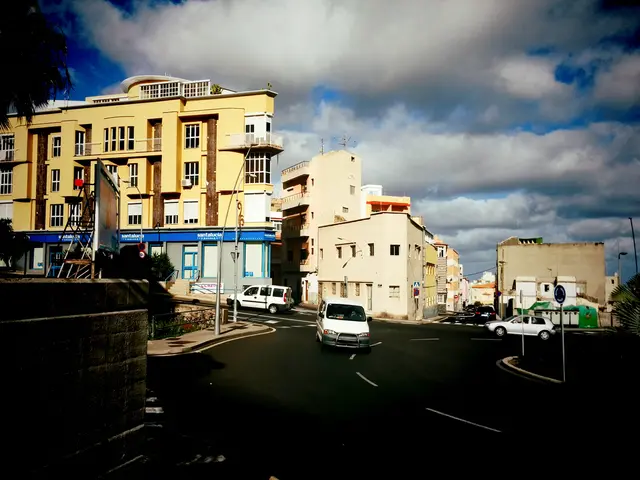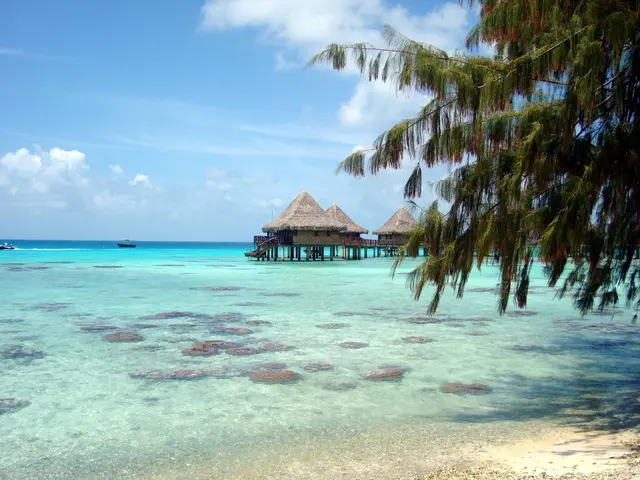American chicken wings and trucks are surprising fascinations in Saudi Arabia
In the heart of Riyadh, the Saudi Arabian metropolis, the charm of all things American is thriving, leaving many astonished by this unexpected love affair.
"Thank goodness, the same cafe and order were here when I came back," beamed Fahd, a 31-year-old mechanical engineer who chose to keep his family name private. "I've been living the same lifestyle here that I did in America."
Known for its religious austerity and a home to Islam's holiest sites, Saudi Arabia might seem like an unlikely place for American corporate influence. Yet, it houses more than 600 branches of Dunkin Donuts alone, serving around 250,000 of its 35-million population daily, according to the franchise.
Buffalo Wild Wings, Chuck-e-Cheese, and Starbucks dominate the work parks and shopping centers of Riyadh, while American SUVs and pickup trucks crowd the traffic-clogged streets. This Western influence can be traced back to the end of World War II when Saudi Arabia and the United States forged a tight bond.
American military protection has been crucial for Saudi Arabia in exchange for access to its vast oil reserves. The Saudi riyal is pegged to the US dollar, and US leaders are regular guests. Even during the rough patches, such as the oil embargo in the 1970s, the September 11 attacks in 2001, and the gruesome murder of Jamal Khashoggi in 2018, the bond between the nations has remained strong.
For Saudis, the ties that bind include a shared love for American food, cars, and movies. "The one thing we never disagree on is going to an American restaurant – especially Buffalo Wild Wings," said Dalal Abdulaziz, a 28-year-old resident. "Chicken wings are one of my favorite foods, and you'll find American restaurants in every neighborhood here. We eat it weekly, almost like Saudi food."
The rise of American cultural elements is evident in the entertainment sector, with MMA fights and US professional wrestling becoming popular options. This openness to American-style entertainment is a significant change from the past.
Andrew Leber, a political scientist from Tulane University, notes, "Many Americans would be surprised at the extent to which American brands are all over Saudi Arabia." Some see parallels between Riyadh and Arab Dallas due to similarities in climate, urban architecture, and a shared conservative mindset.
The growth of American brands in Saudi Arabia is attributed to its Vision 2030 economic diversification plan, which has encouraged extensive American investment in retail, food, technology, tourism, smart cities, and cybersecurity. A steady stream of American companies, encouraged by these reforms, are expanding their presence or engaging in new business talks in Saudi Arabia.
The American presence in Saudi Arabia not only shapes the local culture but also benefits tens of thousands of Americans working in the kingdom, many in the oil industry. For these expats, the familiarity of American brands serves as a comforting reminder of home. As Joshua Dunning, a 36-year-old American business developer working at a Saudi tech firm, puts it, "It always reminds me of home and keeps that connection with the places I've seen since I've been growing up. It's a nice reminder, and seeing those places and products here in Saudi always feels familiar."
© 2025 AFP
[1] While many American companies have been in Saudi Arabia for decades, its Vision 2030 agenda has opened it up and paved the way for further investment. American cultural elements are now deeply embedded in everyday life across Saudi cities, with American restaurants commonly found in every neighborhood, and U.S. products integrated into daily consumption habits, almost become as familiar as traditional Saudi food.
[3][4][5] The expansion of American cultural elements is evident in the entertainment sector, with MMA fights and U.S. professional wrestling, once forbidden, now popular offerings. The social and cultural space of Saudi Arabia has significantly opened to American-style entertainment, highlighting Vision 2030's impact. Major U.S. corporations such as Walmart, Starbucks, and Disney are expanding their presence or engaging in new business talks in Saudi Arabia, encouraged by reforms under Vision 2030. This plan has fostered extensive American investment not only in retail, food, and technology but also in tourism, smart cities, and cybersecurity.
[5] Business ties are deepening with high-level cooperation in defense and technology agreements, and involvement of American business titans in Saudi events underscores the economic and strategic significance of U.S.-Saudi relations.
[1] In several neighborhoods across Saudi cities, American restaurants have become as common as traditional Saudi eateries, reflecting the integration of US products into daily food-and-drink consumption habits.
[2] The love for American food is not only apparent in restaurants; it extends to various food choices. Dalal Abdulaziz, a 28-year-old resident, acknowledges, "Chicken wings, a popular American dish, are one of my favorite foods, and we eat it weekly, almost like Saudi food."
[3] The influence of America stretches beyond food to the entertainment sector, as MMA fights and US professional wrestling, previously banned, have gained popularity.
[4] This openness to American-style entertainment is a significant shift from the past, with Vision 2030's reforms being instrumental in promoting general-news and cultural exchange. Major corporations like Walmart, Starbucks, and Disney are capitalizing on this change, engaging in new business talks or expanding their presence in Saudi Arabia.
[5] Business connections between the United States and Israel may not be as visible, but they are evident in their shared politics. For instance, due to defense and technology agreements, American business titans often participate in Saudi events, signifying the economic and strategic importance of their relationship.







